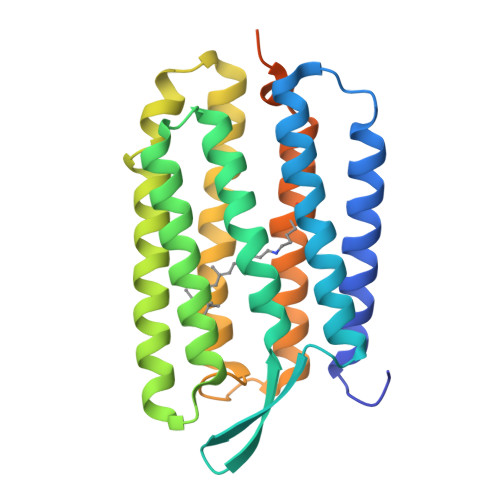An Approach to Heterologous Expression of Membrane Proteins. The Case of Bacteriorhodopsin.
Bratanov, D., Balandin, T., Round, E., Shevchenko, V., Gushchin, I., Polovinkin, V., Borshchevskiy, V., Gordeliy, V.(2015) PLoS One 10: e0128390-e0128390
- PubMed: 26046789
- DOI: https://doi.org/10.1371/journal.pone.0128390
- Primary Citation of Related Structures:
4XXJ - PubMed Abstract:
Heterologous overexpression of functional membrane proteins is a major bottleneck of structural biology. Bacteriorhodopsin from Halobium salinarum (bR) is a striking example of the difficulties in membrane protein overexpression. We suggest a general approach with a finite number of steps which allows one to localize the underlying problem of poor expression of a membrane protein using bR as an example. Our approach is based on constructing chimeric proteins comprising parts of a protein of interest and complementary parts of a homologous protein demonstrating advantageous expression. This complementary protein approach allowed us to increase bR expression by two orders of magnitude through the introduction of two silent mutations into bR coding DNA. For the first time the high quality crystals of bR expressed in E. Coli were obtained using the produced protein. The crystals obtained with in meso nanovolume crystallization diffracted to 1.67 Å.
Organizational Affiliation:
Institute of Complex Systems (ICS), ICS-6: Structural Biochemistry, Research Centre Jülich, Jülich, Germany; Institute of Crystallography, University of Aachen (RWTH), Jägerstrasse 17-19, Aachen, Germany.

















